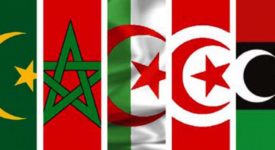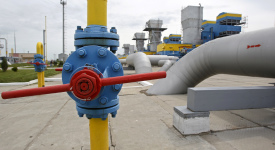Algeria is witnessing protests of hundreds of thousand people who have made it to the streets to demand the departure of the country’s ruling elite after the elderly President Abdelaziz Bouteflika had resigned 10 days ago as a result of the mounting pressure from the army and public demonstrations. The new wave of protests has claimed almost 200 arrests and 80 injuries, although the demonstrations have been largely peaceful. The crowd’s ultimate demand is the removal of an elite that has governed the country since the 1962 independence from France.
President Abdelaziz Bouteflika who had been running the country for two decades has recently been replaced by Abdelkader Bensalah, head of the upper house of parliament, as interim head of state for 90 days until the presidential elections due on 4 July. As part of the old ruling class, the Algerian public is not happy to see Mr. Bensalah at the helm of the country even if for 90 days. “We want the prosecution of all corrupt people” and “no to the gang”, said the banners. Many waved Algeria’s white, green and red crescent moon flag.
Algeria’s economic situation is dire. More than one in four people under the age of 30 are unemployed, one of the key grievances of protesters who want political and economic reforms and liberalization accompanied by a greater diversification of the country’s economy away from the dependence on oil and gas production. The continuing unrest is source of concern for the European Union, mainly France, Italy and Spain, although their influence in the country is limited.
The protests are watched across the Mediterranean especially by the three EU members who have great interest in Algeria’s stability. The EU is Algeria’s largest trading partner but importantly, the Mediterranean EU member states rely on it to tackle terrorism and illegal immigration. Europeans need Algerians to help head off migrants from sub-Saharan Africa before they can get on the boats, while in counterterrorism, efforts are twofold – Algeria helps keep an eye on and thwart groups like Al Qaeda in the Maghreb as well as its intelligence services closely cooperate with their counterparts in Europe to monitor radical and criminal individuals in the Algerian diaspora particularly in France.







